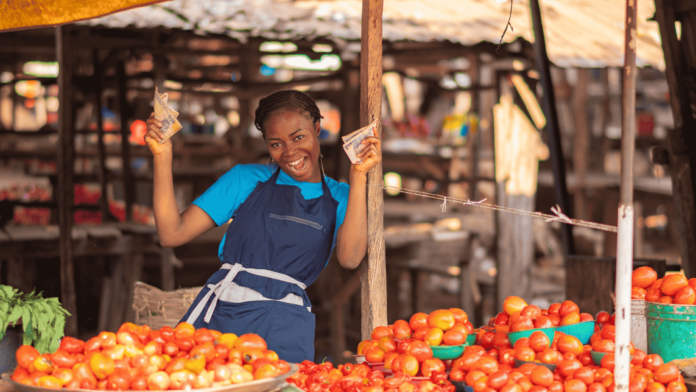Nigerian markets are much more than just shopping spots; they’re lively centers of culture, tradition, and energy. From the vibrant streets of Lagos to the historic markets in Kano, each one offers a unique glimpse into the country’s rich heritage. Whether you’re exploring Nigeria for the first time or seeking to connect with its authentic side, visiting a traditional market is an experience you won’t want to miss. In this post, we’ll explore what makes Nigerian markets so special and why they provide an unforgettable shopping experience.
1. The Essence of Nigerian Markets
Traditional Nigerian markets are where commerce meets culture. These markets are a reflection of Nigeria’s diverse ethnic groups, and you’ll find everything from fresh produce, handcrafted goods, spices, fabrics, and local delicacies to intricate beadwork, pottery, and vibrant textiles. It’s not just about buying and selling; it’s about connecting with local traditions and the stories behind the items.
2. A Journey Through Nigeria’s Famous Markets
Some of Nigeria’s most famous markets, such as Balogun Market in Lagos, Kano Central Market, and Wuse Market in Abuja, offer a kaleidoscope of colors, sounds, and smells that leave a lasting impression on any visitor. Let’s explore some of the must-visit traditional markets in Nigeria:
Balogun Market (Lagos)
Located on the island of Lagos, Balogun Market is one of the largest and most diverse markets in the country. Whether you’re looking for clothing, electronics, household goods, or local art, this market has it all. The streets are packed with vendors selling goods from across Nigeria and beyond, offering a blend of old and new.
Kano Central Market (Kano)
Kano’s central market is a feast for the senses, with its labyrinth of narrow streets filled with traders selling everything from grains and textiles to jewelry and leather goods. The market is one of the oldest in West Africa, and it holds an undeniable charm with its historic significance and lively atmosphere.
Wuse Market (Abuja)
Wuse Market is Abuja’s largest open-air market and one of the busiest in the city. It offers a wide variety of products, from fresh produce and traditional fabrics to crafts and handmade jewelry. If you’re looking for authentic Nigerian souvenirs, this market is a treasure trove.
3. What to Expect in Nigerian Markets
Visiting a Nigerian market is an immersive experience. Here’s what you can expect when shopping in one:
- Vibrant Colors: From the brightly colored fabrics and baskets to the fruits and spices on display, Nigerian markets are a feast for the eyes.
- Lively Atmosphere: The sounds of bargaining, friendly chatter, and music fill the air. Negotiating prices is part of the fun and a tradition in most markets.
- A Rich Mix of Goods: Expect to find a wide range of goods, from fresh produce like yams, tomatoes, and plantains to locally made crafts and handmade jewelry. The variety is staggering, making it a one-stop shop for almost anything you need.
- Authentic Souvenirs: Many markets offer a wide selection of traditional Nigerian crafts, from beadwork and pottery to clothing and art. These make for great souvenirs and a way to support local artisans.
Related Content: Iconic Nigerian Street Foods You Must Try
4. Why Visit Nigerian Markets?
A visit to a traditional market is a chance to engage with the people of Nigeria and understand the heartbeat of the nation. These markets are not just shopping destinations; they are the cultural pulse of the community, where traditions, stories, and customs are passed down through generations. Here are a few reasons why visiting Nigerian markets is a must:
- Cultural Immersion: Walking through these markets, you’ll encounter the warmth of Nigerian hospitality and learn about local customs, languages, and traditions.
- Affordable Goods: While prices can vary, you can often find great deals, especially if you enjoy the art of haggling.
- Local Delicacies: Some markets offer fresh local foods, so you can taste Nigerian specialties like jollof rice, suya, pounded yam, and small chops while you shop.
- Authentic Souvenirs: Whether you’re in search of unique jewelry, clothing, or art, Nigerian markets offer a wide array of locally-made products that reflect the country’s rich cultural diversity.
5. Tips for Shopping in Nigerian Markets
To make the most of your shopping experience in Nigerian markets, here are some helpful tips:
- Bargain Wisely: Bargaining is common in Nigerian markets, so don’t be afraid to negotiate prices, but always be respectful and friendly.
- Be Mindful of Your Belongings: As with any busy marketplace, it’s important to stay alert and keep an eye on your personal items.
- Bring Cash: While some vendors may accept mobile payments or cards, cash is the preferred method of payment in most traditional markets.
- Dress Comfortably: Markets can be crowded and hot, so wear comfortable shoes and light clothing for easy movement.
- Engage with Locals: Don’t be shy to strike up a conversation with the sellers; they are often happy to share insights into their goods and traditions.




